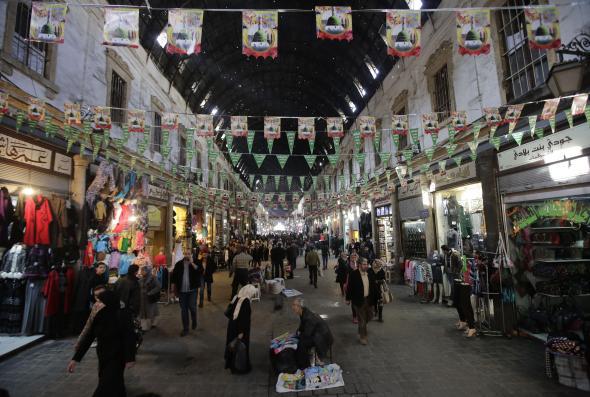Even at an annual growth rate of 5 percent, which seems extremely optimistic, it would take Syria 30 years to get back to its pre-war GDP, according to a recent analysis by Jihad Yazigi, a visiting fellow at the European Council on Foreign Relations who writes about the country’s economy on his website, the Syria Report.
After three years of war, the country’s poverty and unemployment rates are both over 50 percent, deficits have increased by over 10 times, and foreign exchange reserves are dwindling.
According to Yazigi’s analysis, Syria’s economy has fractured in two. In regime-controlled areas, basic services and goods and still largely available and salaries are being paid. Perversely, the fact that the country’s population has been reduced by 15 percent though refugee flight and war casualties as well as the fact that those who are left have lower purchasing power, makes it easier for the government to keep everyone paid and maintain services like water, electricity, and health care.
In rebel-controlled and disputed areas, it’s a different story: Between 30 and 40 percent of the country no longer possesses basic services.
Yazigi writes of the emergence of a parallel “war economy”: “As security has collapsed, an informal economy comprising looting, kidnapping, and smuggling has become an important source of income. Entirely new business networks, often illicit, are emerging and new groups and individuals are being empowered at the expense of the traditional business class.”
He singles out the country’s northeastern region, home to significant agricultural and energy resources, which has now “developed an economic life of its own with the development of a particularly buoyant oil trade and the enrichment of a new class of tribal and rebel leaders.”
The more troubling aspect of this, he writes, is that “significant sectors of the economy now live and thrive off the conflict, creating a growing pool of individuals and groups that have no interest in seeing the conflict end.”
While it will take Syria decades to recover from the human and economic costs of this war, there are, as always, some people who are making out very well.
